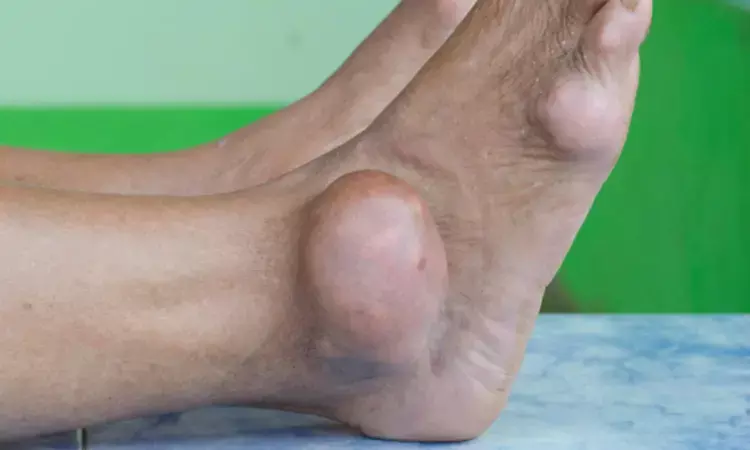- Home
- Medical news & Guidelines
- Anesthesiology
- Cardiology and CTVS
- Critical Care
- Dentistry
- Dermatology
- Diabetes and Endocrinology
- ENT
- Gastroenterology
- Medicine
- Nephrology
- Neurology
- Obstretics-Gynaecology
- Oncology
- Ophthalmology
- Orthopaedics
- Pediatrics-Neonatology
- Psychiatry
- Pulmonology
- Radiology
- Surgery
- Urology
- Laboratory Medicine
- Diet
- Nursing
- Paramedical
- Physiotherapy
- Health news
- Fact Check
- Bone Health Fact Check
- Brain Health Fact Check
- Cancer Related Fact Check
- Child Care Fact Check
- Dental and oral health fact check
- Diabetes and metabolic health fact check
- Diet and Nutrition Fact Check
- Eye and ENT Care Fact Check
- Fitness fact check
- Gut health fact check
- Heart health fact check
- Kidney health fact check
- Medical education fact check
- Men's health fact check
- Respiratory fact check
- Skin and hair care fact check
- Vaccine and Immunization fact check
- Women's health fact check
- AYUSH
- State News
- Andaman and Nicobar Islands
- Andhra Pradesh
- Arunachal Pradesh
- Assam
- Bihar
- Chandigarh
- Chattisgarh
- Dadra and Nagar Haveli
- Daman and Diu
- Delhi
- Goa
- Gujarat
- Haryana
- Himachal Pradesh
- Jammu & Kashmir
- Jharkhand
- Karnataka
- Kerala
- Ladakh
- Lakshadweep
- Madhya Pradesh
- Maharashtra
- Manipur
- Meghalaya
- Mizoram
- Nagaland
- Odisha
- Puducherry
- Punjab
- Rajasthan
- Sikkim
- Tamil Nadu
- Telangana
- Tripura
- Uttar Pradesh
- Uttrakhand
- West Bengal
- Medical Education
- Industry
Early allopurinol initiation in acute gout flare has no significant benefit: Study

Gout is among the most prevalent etiologies of chronic inflammatory arthritis in the United States. The evaluation and management of gout and highlights the role of interprofessional team members in collaborating to provide well-coordinated care and enhance patient outcomes.
A new study by Panchalee Satpanic reported that early allopurinol initiation during an acute gout flare did not show significant changes in time to resolution, flare recurrence, and inflammatory markers. This study is published in Clinical Rheumatology.
The objective of the study was to compare the time to complete resolution of acute gout flare between early and late allopurinol initiation.
The study was 28-day, randomized controlled, open-label trial included patients with crystal-proven gout who were presented with acute gout flare within 72 h of arthritis onset. Exclusion criteria were advanced renal failure, ongoing ULT, and presence of the HLA-B*5801 allele. Allopurinol was used on days 1 and 14 in early and late groups, respectively. Primary outcome was time to complete arthritis resolution, and secondary outcomes were time to clinical resolution; arthritis relapse; laboratory parameters; and adverse events.
The results of the study were found to be
• A total of 117 patients were randomized to early and late allopurinol groups (n = 59 and 58, respectively).
• One patient in each group was lost to follow-up; therefore, 115 patients were included in the modified intention-to-treat analysis.
• Baseline characteristics were comparable between the groups. The median time to complete resolution was not significantly different between the early and late allopurinol groups (6 [5–14] and 6 [5–7] days, respectively; p = 0.14).
• The median time to clinical resolution was 4 [3–6] days in both groups (p = 0.12). Other secondary outcomes were not significantly different. Serious adverse events did not occur in either group.
Satpanic and team concluded that "Early allopurinol initiation during an acute gout flare did not lead to significant changes in time to resolution, flare recurrence, and inflammatory markers."
For further information: Satpanich P, Pongsittisak W, Manavathongchai S. Early versus late allopurinol initiation in acute gout flare (ELAG): a randomized controlled trial. Clin Rheumatol. Published online August 18, 2021. doi:10.1007/s10067-021-05872-8
Medical Dialogues consists of a team of passionate medical/scientific writers, led by doctors and healthcare researchers. Our team efforts to bring you updated and timely news about the important happenings of the medical and healthcare sector. Our editorial team can be reached at editorial@medicaldialogues.in.
Dr Kamal Kant Kohli-MBBS, DTCD- a chest specialist with more than 30 years of practice and a flair for writing clinical articles, Dr Kamal Kant Kohli joined Medical Dialogues as a Chief Editor of Medical News. Besides writing articles, as an editor, he proofreads and verifies all the medical content published on Medical Dialogues including those coming from journals, studies,medical conferences,guidelines etc. Email: drkohli@medicaldialogues.in. Contact no. 011-43720751


